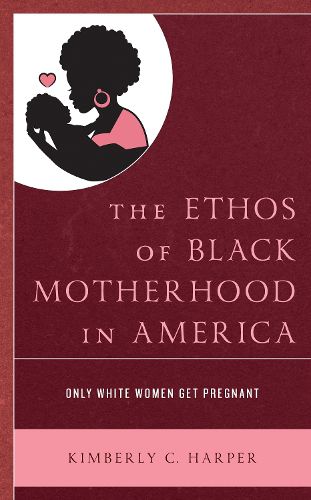Readings Newsletter
Become a Readings Member to make your shopping experience even easier.
Sign in or sign up for free!
You’re not far away from qualifying for FREE standard shipping within Australia
You’ve qualified for FREE standard shipping within Australia
The cart is loading…






The Ethos of Black Motherhood in America: Only White Women Get Pregnant examines the ethos of Black and white mothers in America’s racialized society. Kimberly C. Harper argues that the current Black maternal health crisis is not a new one, but an existing one rooted in the disregard for Black wombs dating back to America’s history with chattel slavery. Examining the reproductive laws that controlled the reproductive experiences of black women, Harper provides a fresh insight into the bad black mother trope that Black feminist scholars have theorized and argues that the controlling images of black motherhood are a creation of the American nation-state. In addition to a discussion of black motherhood, Harper also explores the image of white motherhood as the center of the landscape of motherhood. Scholars of communication, gender studies, women’s studies, history, and race studies will find this book particularly useful.
$9.00 standard shipping within Australia
FREE standard shipping within Australia for orders over $100.00
Express & International shipping calculated at checkout
The Ethos of Black Motherhood in America: Only White Women Get Pregnant examines the ethos of Black and white mothers in America’s racialized society. Kimberly C. Harper argues that the current Black maternal health crisis is not a new one, but an existing one rooted in the disregard for Black wombs dating back to America’s history with chattel slavery. Examining the reproductive laws that controlled the reproductive experiences of black women, Harper provides a fresh insight into the bad black mother trope that Black feminist scholars have theorized and argues that the controlling images of black motherhood are a creation of the American nation-state. In addition to a discussion of black motherhood, Harper also explores the image of white motherhood as the center of the landscape of motherhood. Scholars of communication, gender studies, women’s studies, history, and race studies will find this book particularly useful.